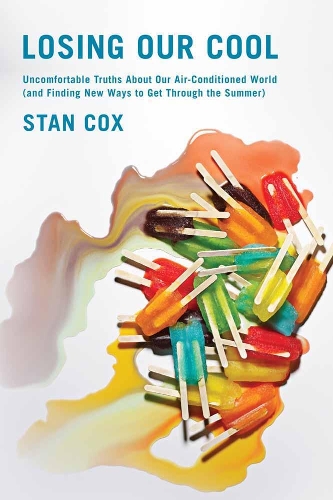
Losing Our Cool: Uncomfortable Truths About Our Air-Conditioned World (and Finding New Ways to Get Through the Summer)
(Paperback)
Available Formats
Publishing Details
Losing Our Cool: Uncomfortable Truths About Our Air-Conditioned World (and Finding New Ways to Get Through the Summer)
By (Author) Stan Cox
The New Press
The New Press
5th June 2012
United Kingdom
Classifications
General
Non Fiction
Climate change
613.5
Physical Properties
Paperback
258
Width 135mm, Height 216mm
306g
Description
Losing Our Cool exposes the surprising ways in which air conditioning changes human experience: giving a boost to global warming that it is designed to help humans endure; enabling an otherwise impossible commuter economy; and altering human migration patterns. Stan Cox argues that by reintroducing traditional cooling methods and putting newer technologies into practice - and by moving beyond industrial definitions of comfort - people can keep themselves comfortable and keep the planet comfortable too.
Reviews
This is an important book. The history of air-conditioning is really the history of the worlds energy and climate crises, and by narrowing the focus Stan Cox makes the big picture comprehensible. He also suggests remedieswhich are different from the ones favored by politicians, environmentalists, and appliance manufacturers, not least because they might actually work.
David Owen, author of Green Metropolis
As Stan Cox details in his excellent new book, Losing Our Cool, air conditioning has been a major force in shaping western society.
Bradford Plumer, The National
This book is the go-to source for a better understanding of the complexity of pumping cold air into a warming climate.
Maude Barlow
Important. . . .What I like about Coxs book is that he isnt an eco-nag or moralist."
Tom Condon, Hartford Courant
Stan Cox offers both some sobering facts and some interesting strategies for thinking through a big part of our energy dilemma.
Bill McKibben
Well-written, thoroughly researched, with a truly global focus, the book offers much for consumers, environmentalists, and policy makers to consider before powering up to cool down.
Publishers Weekly
Author Bio
Stan Cox is a plant breeder at the Land Institute in Salina, Kansas. He has written on environmental issues for newspapers nationwide, including the Washington Post and the Los Angeles Times, as well as for CounterPunch, AlterNet, and many other online publications. He is the author of Sick Planet: Corporate Food and Medicine.
